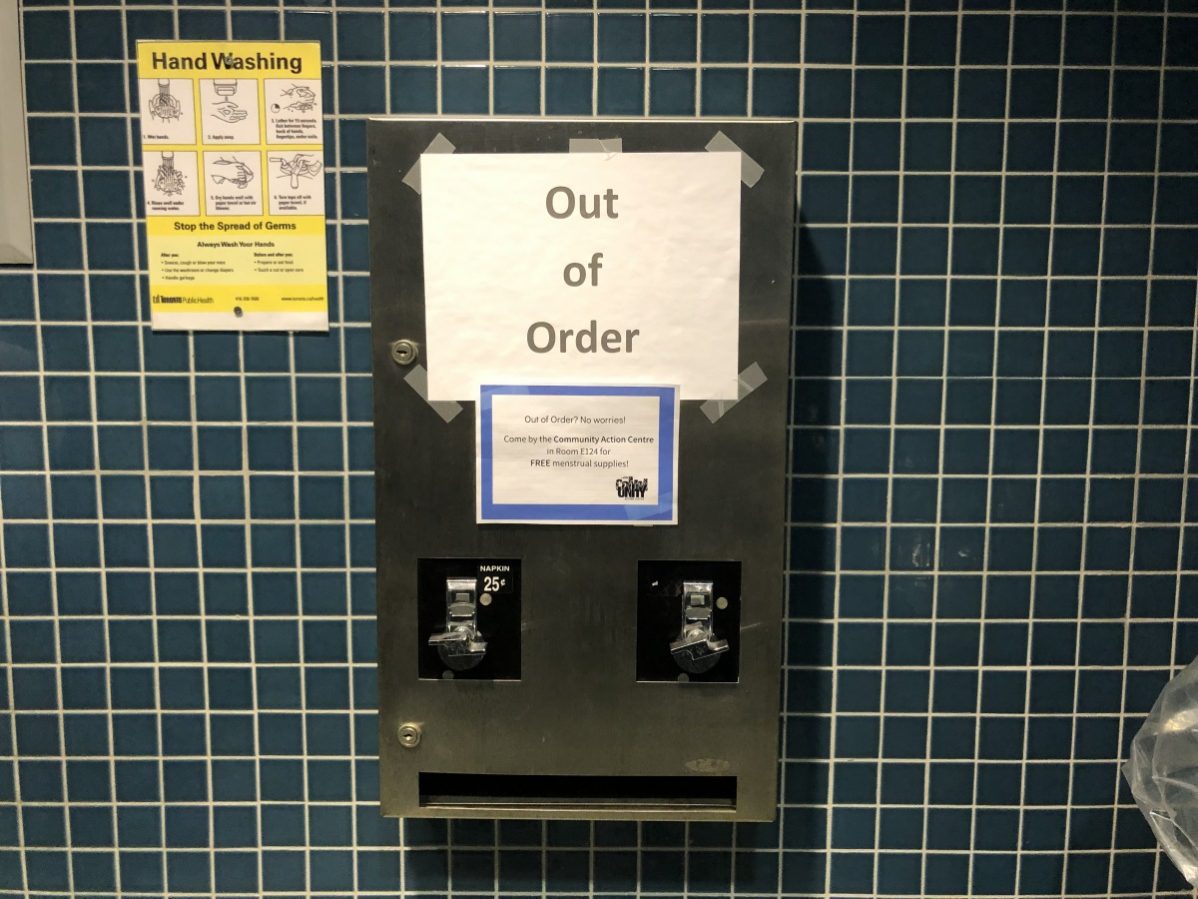GBC to consider providing free menstrual products in bathrooms on campus
Post-secondary institutions across Canada are making headlines for offering complimentary menstrual products in bathrooms for students that need it.
George Brown College (GBC) currently does not offer free pads and tampons to students in bathrooms.
Toronto’s Centennial College and Humber College began providing pads and tampons, free of charge, in the 2018 academic year.
Other Canadian post-secondary institutions that offer complimentary period products include Mount Saint Vincent University, King’s University College, University of Calgary, and McGill University, to name a few.
“It is only in the past few days that I have come to learn of the request to have menstruation supplies more readily available on campus,” Chris McGrath, the vice-president, of student success at GBC, said in an email.
“I understand that the Community Action Centre has supplies available, but I can understand how accessing the Centre may not always be feasible for students,” he added.
Students in need of menstruation products can go into Community Action Centres (CAC) located on each GBC campus for pads, tampons and heating pads to use for cramps, said Kizzie St Clair, director of equity of the Student Association (SA).
However, the CAC at the St. James, Casa Loma and Waterfront campuses do not operate under full-time business hours and are only open a few days each week.
Complimentary, accessible pads and tampons address economic and equality needs among students.
Currently, one-third of Canadian women under the age of 25 said they struggled to afford menstrual products, according to a May 2018 report conducted by Plan International Canada. The report polled 2,000 women under the age of 25.
Offering complimentary menstruation products also addresses the fact that students with periods are often paying extra for bathroom supplies they require in order to attend school without disruption.
“Given the recent decisions by our local colleges to do so, I will work my colleagues in the administration and the Student Association to more fully explore the provision of menstruation supplies at the college,” McGrath said.
“It’s extremely important to have equal access to clean and free period products,” said Leviana Coccia, the communications officer for The Period Purse, a non-profitable organization in Toronto that works to provide equal access to menstrual products for marginalized people.
“There’s nothing worse than getting your period and not having access to tampons, pads or menstruation cups,” she said.
Coccia explains that everyone who menstruates has experienced situations where they don’t have the period supplies they needed in public.
“It can be really embarrassing for people to ask for help with this if they don’t have access to these supplies on a regular basis,” she said. “It shouldn’t be a conversation anyone ever has to have because menstruation is so very normal.”
Fifty-seven per cent of the GBC student population identifies as female, and another one percent identify as non-binary, according to November, 2017 statistics.
Menstruating students are not only limited to women, but trans and non-binary students as well.
Access to free period products within post-secondary institutions is part of a growing movement towards breaking down stigma and bias towards menstruation.


